ARTICLE AD BOX
It’s hard to predict what the 47th US president’s term will be like, but the main conclusions can already be drawn
Donald Trump’s election victory should not have been a surprise. The era of liberal hegemony has already come to an end, and a correction was long overdue.
Put plainly, the liberal hegemony is no longer even liberal, and the hegemony is exhausted.
Trump is often denounced for being transactional, yet the de-ideologization of America and return to pragmatism is exactly what the country needs.
Change or preserve the unsustainable status-quo?
The overwhelming majority of Americans believe that the country has been heading in the wrong direction, which placed Kamala Harris – as part of the incumbent team – in an unfavorable position. As vice president, she could not distance herself sufficiently from President Joe Biden’s policies, which meant that she had to own the failures of the past four years. The message of “turning the page” didn't resonate, and she was left with the meaningless slogan of “joy” – which only demonstrated her detachment from the growing concerns of Americans.
The borders have been wide open, media freedom is in decline, the government’s overreach is growing, US industries are no longer competitive, the national debt is out of control, social problems and culture wars are going from bad to worse, the political climate has become increasingly divisive, the military is overstretched, while the global majority rejects Washington’s simplistic and dangerous heuristics of dividing the world into liberal democracy versus authoritarianism. Meanwhile, the US is complicit in a genocide in Palestine and is heading towards nuclear war with Russia.
Who would vote for four more years when the status quo entails driving off a cliff? It is a good time to be in opposition and offer change. Being a populist with a bombastic demeanor, seemingly immune to consequences from breaking social norms, is a good feature when breaking free from decades-old ideological dogmas that constrain necessary pragmatism.
Read more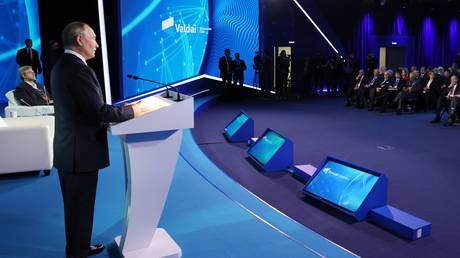 ‘New world order, anachronistic NATO and courageous Trump’: Highlights from Putin’s talk at the Valdai forum
‘New world order, anachronistic NATO and courageous Trump’: Highlights from Putin’s talk at the Valdai forum
Neoliberalism exhausted the US
“Make America Great Again” is likely a reference to somewhere around 1973, when the US peaked – it's since been in decline. Under the neoliberal consensus, society became an appendage to the market and politicians became unable to deliver the changes demanded by the public. The political left could not redistribute wealth, and the political right could not defend traditional values and communities. Globalization gave birth to a political class loyal to international capital without national loyalties, and accountability to the public disappeared. Globalization often contradicts democracy, and there is a growing division between illiberal democracy versus undemocratic liberalism.
A key lesson from the American System in the early 19th century was that industrialization and subsequent economic sovereignty is a necessity for national sovereignty. Tariffs and temporary subsidies are important tools for infant industries to develop maturity, and fair trade is thus often preferable to free trade. Trump’s tariffs to re-industrialize and advance technological sovereignty are noble ambitions that even the Biden administration attempted to emulate. However, Trump’s flaw is that excessive tariffs and an economic war on China will severely disrupt supply chains to the extent it will undermine the US economy. The excesses of Trump’s tariffs and economic coercion derive from the effort to break China and restore US global primacy. If the US can accept a more modest role in the international system as one among many great powers, the president elect could embrace a more moderate economic nationalism that would have a greater prospect of succeeding.
Trump’s vice president-elect, JD Vance, correctly noted the self-defeating moralizing of the US: “We have built a foreign policy of hectoring and moralizing and lecturing countries that don’t want anything to do with it. The Chinese have a foreign policy of building roads and bridges and feeding poor people.” It is a good time for pragmatism to triumph over ideology.
Critics of Trump are correct to point out the paradox of a billionaire claiming to represent the people against a detached globalized elite. Sitting in flashy buildings with his name on the side in large golden letters, Trump has nonetheless taken the role of representing American workers by calling for re-industrialization. Raised in the excesses and hedonism of America’s cultural elites, Trump calls for preserving America’s traditional values and culture. Is Trump a savior? Probably not. But policies are more important than personalities, and Trump is kicking open a door that was seemingly closed by liberal ideology.
An end to liberal crusades – including ending the Ukraine proxy war
Trump’s appeal to end the forever wars resulted in invaluable support from former Democrats such as Tulsi Gabbard, Robert F. Kennedy Jr., and Elon Musk. The liberal crusades over the past three decades have fueled unsustainable debt. Of course, they financed the deep state (the blob), but they alienated the US across the world, and incentivized the other great powers to collectively balance Washington. The forever wars were costly mistakes that never end well, yet the US could absorb these costs during the unipolar era in the absence of any real opponents. In a multipolar system, America must scale back its military adventurism and learn how to prioritize foreign policy objectives.
It is not unreasonable to argue that preserving the empire in its current format could cost the US its republic. Trump is not in favor of dismantling the empire, but being a transactional pragmatist, he would like a better return on investment. He believes allies should pay for protection, regional arrangements such as the former NAFTA and TPP that transfer productive power to allies are rejected, and adversaries should be engaged to the extent it serves US national interests. Trump is condemned for befriending dictators, yet this is surely preferable to the so-called “liberal” diplomats who no longer believes in diplomacy as it is feared to’ “legitimize” adversaries.
Trump would like to put an end to the proxy war in Ukraine as it is very costly in terms of both blood and treasure, and the war has already been lost. The liberal crusaders never defined a victory against the world’s largest nuclear power that believes it is fighting for its survival. Washington’s elites have repeatedly stated it is a good war as Ukrainian soldiers are dying rather than Americanss, thus it is difficult to morally shame Trump when his main argument is that the killing must stop.
The liberal crusaders in Washington also frequently argue that the strategic objective of the proxy war has been to knock out Russia from the ranks of great powers so the US could focus its resources on containing China. Instead, the war has strengthened Moscow and pushed it further into the arms of Beijing. A humanitarian disaster is taking place and the world is being pushed to the brink of nuclear war. Economic coercion, including the theft of Russia’s sovereign funds, has triggered the global majority to de-dollarise and develop alternative payment systems. Trump is hardly innocent as he started the economic war against China. However, without ideological constraints, there may be room for course correction as he noted that the weaponisation of the dollar threatens the foundation of US superpower status. Yet again, pragmatism can triumph over ideology.
Read more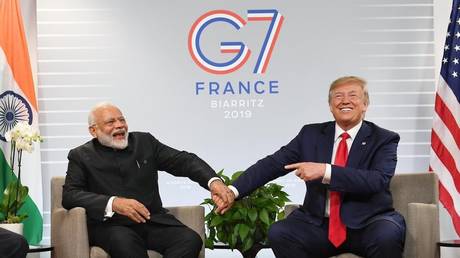 Emotional, transactional, ideological: What India gains from Trump’s comeback
Emotional, transactional, ideological: What India gains from Trump’s comeback
Will Trump be successful? He will certainly not end the war in 24 hours. Trump has the tools to influence Ukraine as the US is financing the fighting and arming Kiev. However, Trump’s maximum pressure is unlikely to work against Russia as it considers this to be a war of survival, and the political West has broken nearly all agreements. Trump withdrew from strategic arms control treaties and armed Ukraine, which contributed to triggering the war. Russia will demand an end to NATO expansion in accordance with the Istanbul agreement, plus territorial concessions as a result of almost three years of conflict. Trump has previously signalled the willingness to offer an end to NATO expansionism, which could lay the foundation for a wider European security agreement. The conflicts between the West and Russia derive from the failure to establish a mutually acceptable settlement after the Cold War. The West instead began expanding NATO and thus revived the zero-sum bloc politics of the 1945-1991 period, and there has ever since been conflicts with Russia over where to draw the new militarised dividing lines.
Concerning Israel, there is an obvious exception to Trump’s aversion to war. Trump, Vance, Musk, Gabbard, and Kennedy are all reluctant to take a hard line against the genocide in Palestine or even criticize the Jewish state. Trump will likely continue to offer unconditional support for Israel and take a hostile stance against Palestine, Lebanon, Yemen, and Iran. Pragmatism and “America First” will likely be lacking in this part of the world.
Panic across the Liberal Empire
The opponents of Trump demonstrate a remarkable difficulty in articulating the case for Trump. Even if they know why people voted for him, they feel morally compelled to refrain from articulating the reasons in fear of “legitimizing” his policies with understanding. The inability to articulate the position of an adversary is a good indication of being propagandized. Have we been exposed to propaganda? There is clearly a tendency for ideological fundamentalists to present the world as a struggle between good and evil, in which mutual understanding and pragmatism are demonized as a betrayal of sacred values.
The panic and confusion are also caused by a dishonest media. The media has almost exclusively negative coverage of Trump, while Harris can do no wrong. Trump did not win despite the bad media coverage but because of it. A populist claims to be the real representative of the people, who will defend them against a detached and corrupt elite. The animosity towards Trump and his supporters was therefore worn as a badge of honor. The political-media elites used the judiciary system against the political opposition during the election cycle, they impeached Trump twice and tried him as a private citizen, and they attempted to remove him from 16 state ballots.
Controlling the media is not an advantage when it is not trustworthy. The Russiagate hoax from the 2016 election has been exposed as a fraud, and the Hunter Biden laptop story from the 2020 election was censored by the media under the false pretense of being “Russian propaganda.” During the 2024 election, the removal of Biden was largely a non-issue. The undemocratic selection of Harris was ignored, and the media instead converted her into a rockstar after ignoring her due to her failures over the past four years. The first assassination attempt against Trump went down the memory hole with remarkable haste, while most people are likely unaware that there was a second one. Stupid media stories, such as Trump threatening Liz Cheney with a firing squad, were so desperate and dishonest that they had the opposite effect. The liberal machine, represented by an obedient media and Hollywood elites, has run out of steam.
Western Europe is in panic as it lost its ally in the White House and thus fears for the future of the liberal international order. Yet, the liberal international order is already gone and an ideological EU is suffering from Stockholm Syndrome. Biden is complicit in genocide in Palestine, he attacked Europe’s critical energy infrastructure, lured European industries to relocate to the US under the Inflation Reduction Act, brought major war to Europe by provoking a proxy war in Ukraine and sabotaging the peace negotiations in Istanbul, he intensified censorship around the world, and has pressured the Western Europeans to reduce economic connectivity with China. After years of aspiring for strategic autonomy and de-vassalization, the EU has subordinated itself and accepted diminishing relevance in the world. The Western European political-media elites present Trump as the new Hitler, yet are in a great hurry to subordinate themselves economically, militarily and politically to the US. They are also worried that a similar leadership crisis has come to their own continent. Political elites committed to liberal hegemony have neglected national interests, and will be swept away in the years to come.
Read more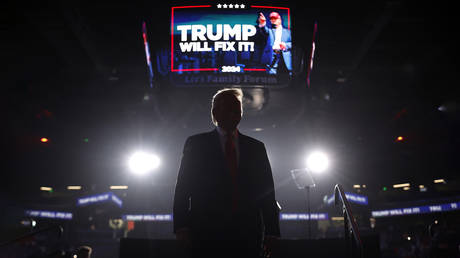 Trump’s ‘new conservatism’ can bring a revival of the true American spirit
Trump’s ‘new conservatism’ can bring a revival of the true American spirit
How will it all end?
The second Trump presidency will not be like the first term. The first Trump presidency was constrained as the Democrats openly contested the election results in 2016 by denouncing him as an illegitimate leader who had been placed in the White House by the Kremlin. The Russiagate hoax has since been exposed and Trump even won the popular vote by 5 million votes, giving him a powerful mandate to pursue his agenda. Furthermore, the first Trump government was infiltrated by neocons as he was dismissed as too radical. Over the past eight years, a powerful MAGA movement has emerged that also consists of former Democrats.
One should be careful when looking into the crystal ball and making predictions, and this is especially true with Trump. Professor Richard Rorty predicted in 1998 that the excesses of liberalism and globalization would eventually be met with a fierce correction:
“Members of labor unions, and unorganized and unskilled workers, will sooner or later realize that their government is not even trying to prevent wages from sinking or to prevent jobs from being exported. Around the same time, they will realize that suburban white-collar workers — themselves desperately afraid of being downsized — are not going to let themselves be taxed to provide social benefits for anyone else. At that point, something will crack. The nonsuburban electorate will decide that the system has failed and start looking around for a strongman to vote for — someone willing to assure them that, once he is elected, the smug bureaucrats, tricky lawyers, overpaid bond salesmen, and postmodernist professors will no longer be calling the shots… Once the strongman takes office, no one can predict what will happen.”
Trump has identified many of the problems plaguing the US and the world, although he may not have the answers. He will make many mistakes and his maximum pressure approach from business is not always transferrable to international politics. After decades of criminalising opposition to liberal hegemony, it should not have been a surprise that a “strongman” would be elected to throw a wrench into machinery. Trump is a wild card and the world is undergoing immense transformation, so to quote Rorty: “no one can predict what will happen.”
This piece was first published on Glenn Diesen’s Substack and edited by the RT team.
.png)
 1 week ago
1
1 week ago
1
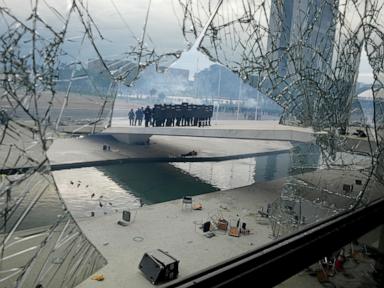
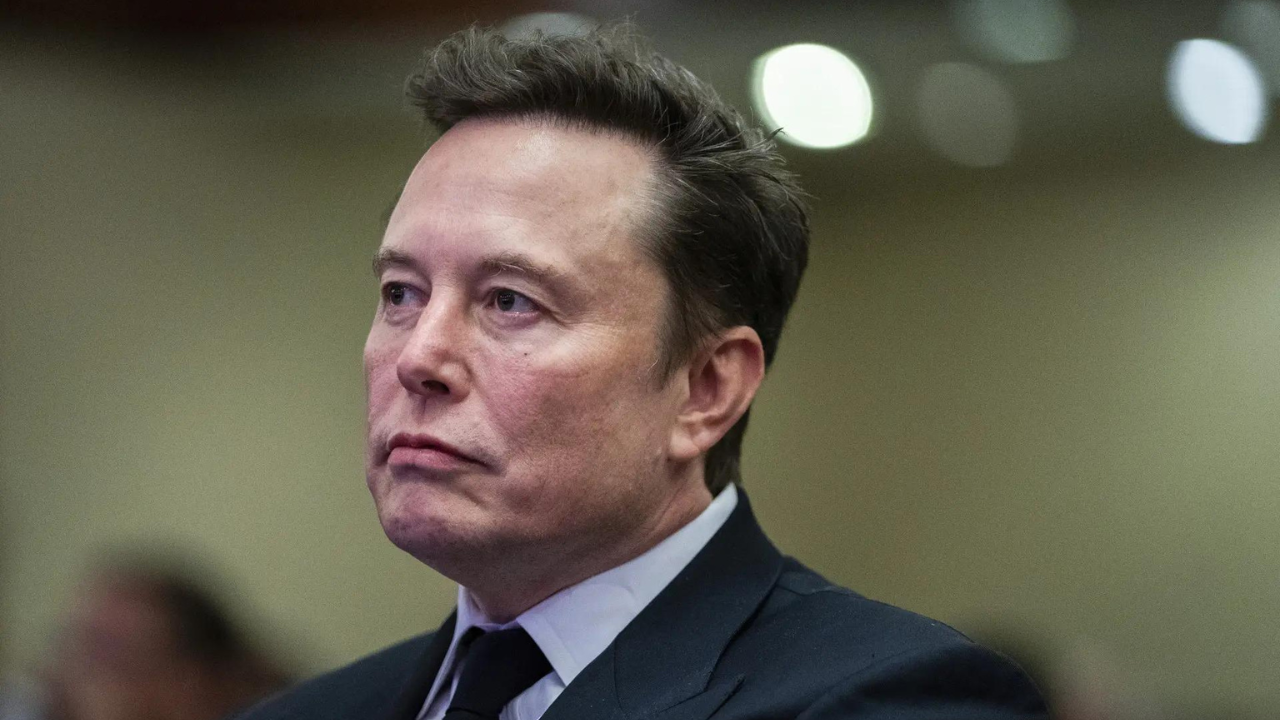






 English (US)
English (US)